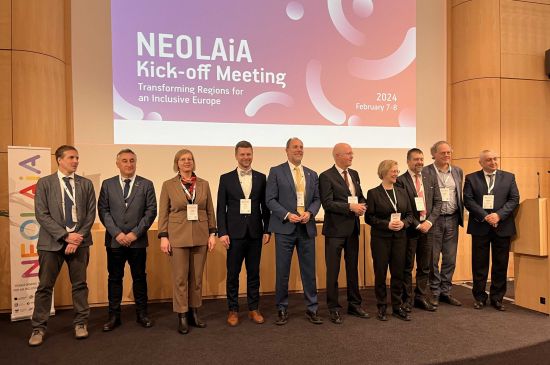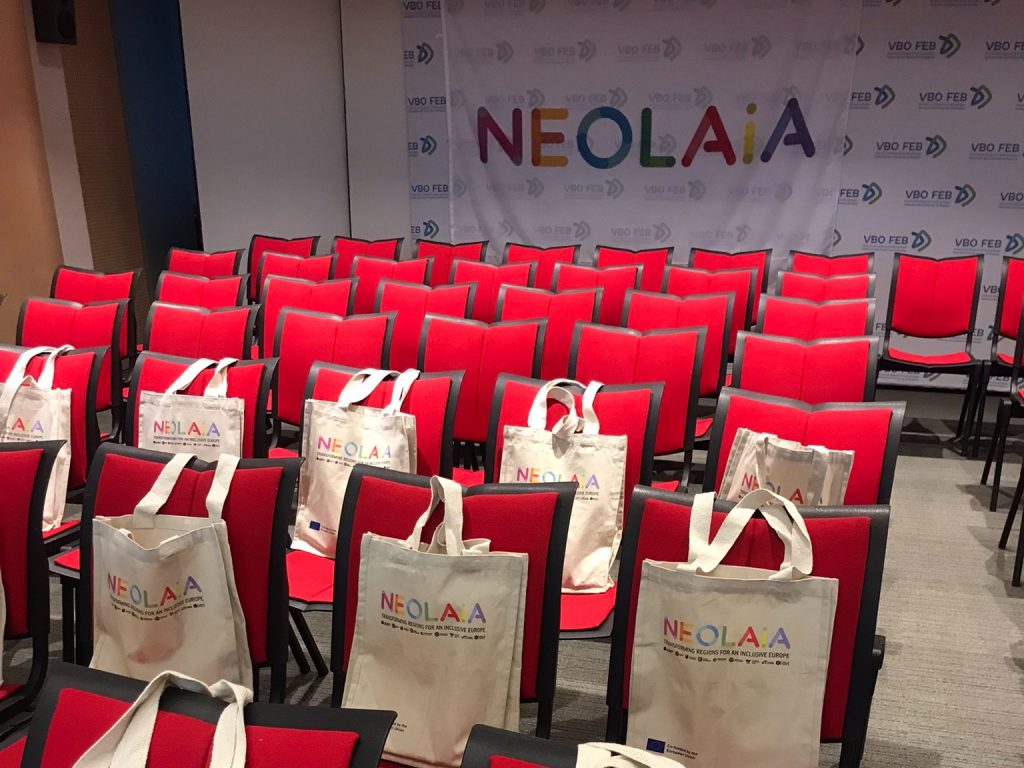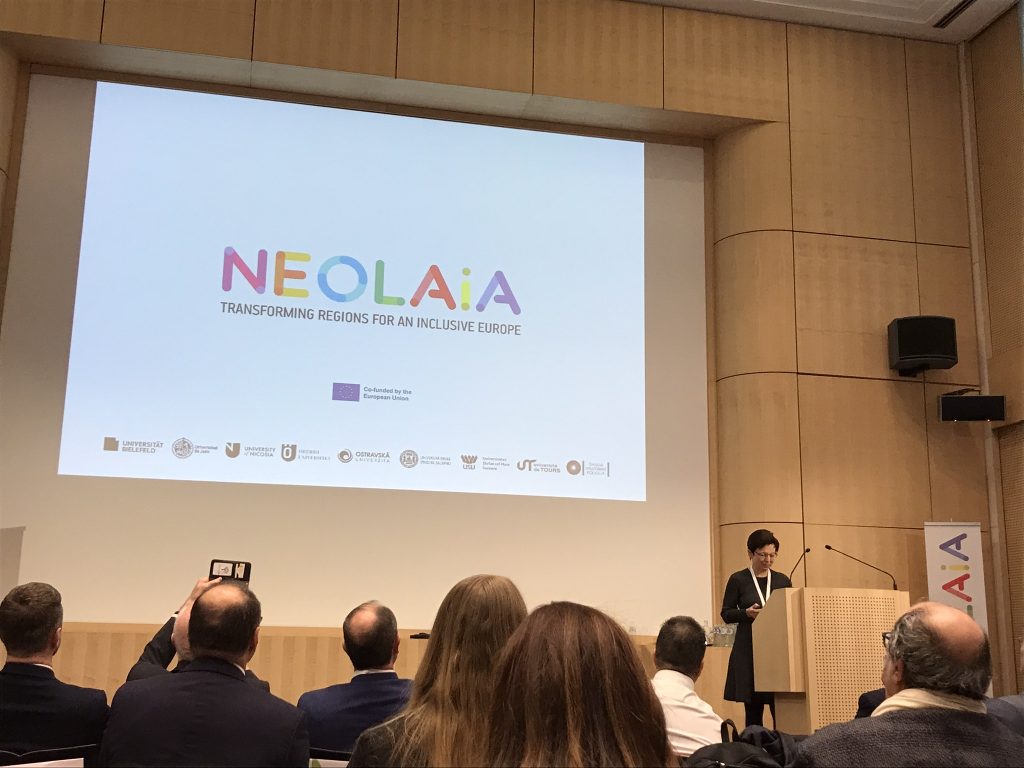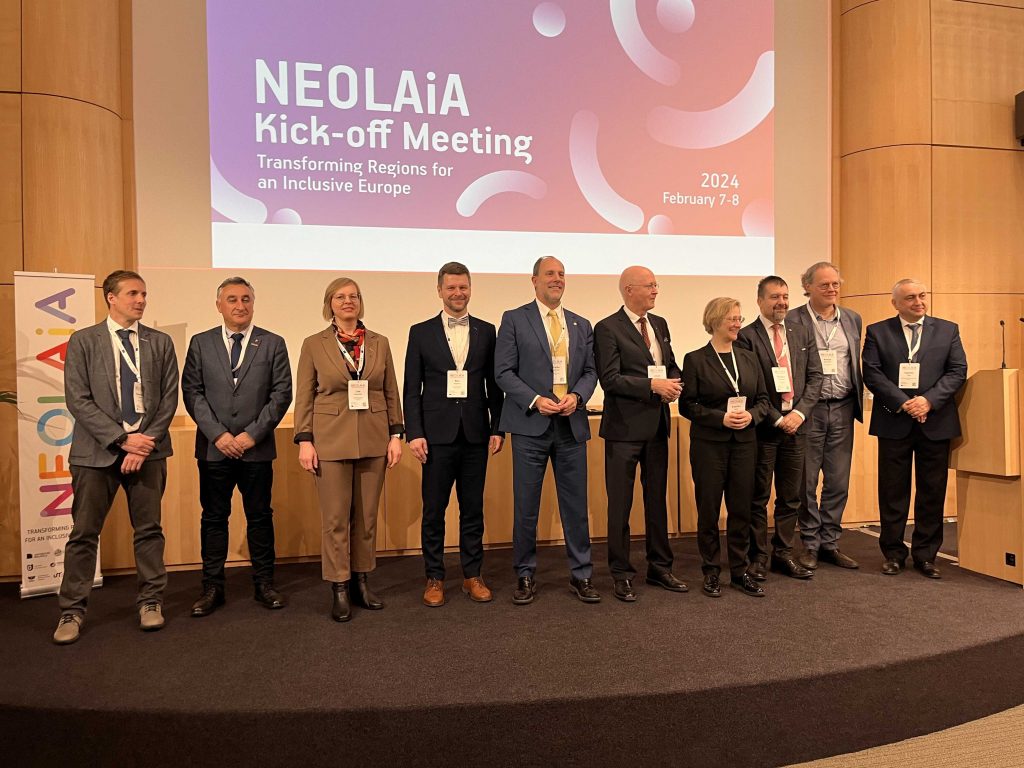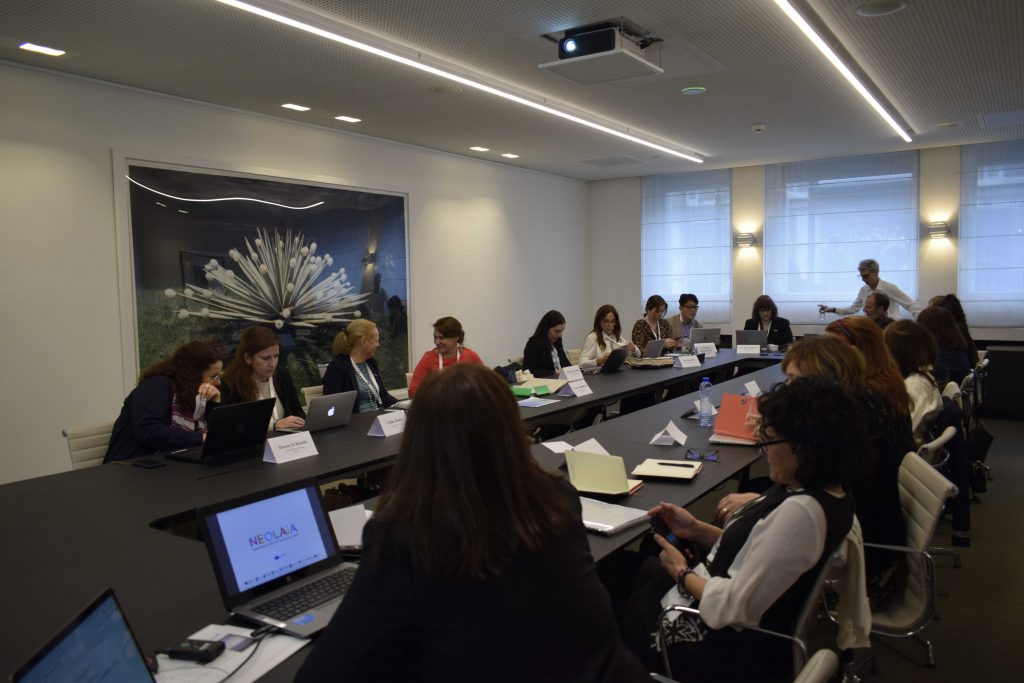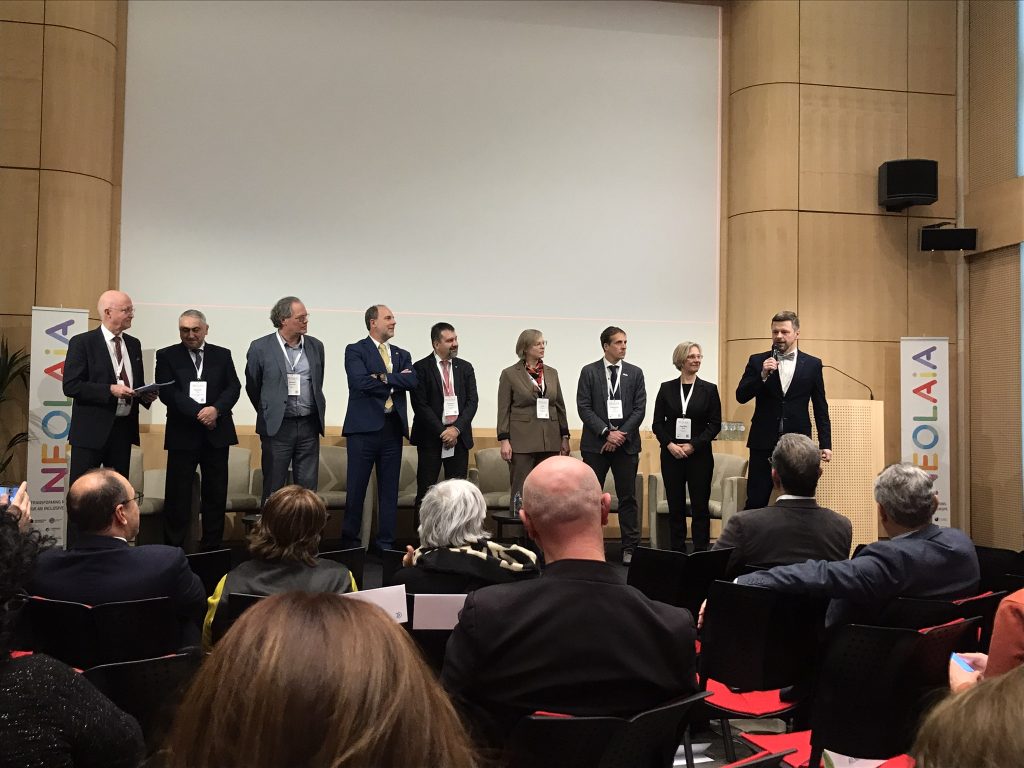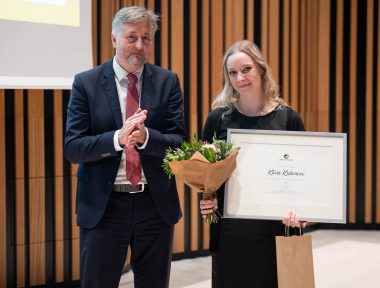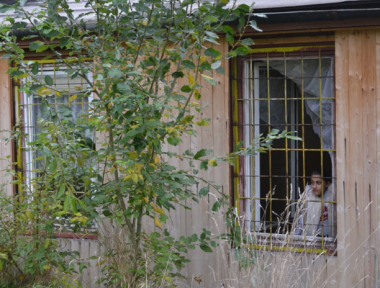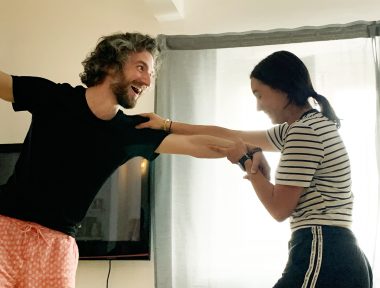The NEOLAiA project kicked off with its inaugural event at the Bevenue conference center in Brussels (VBO FEB). The premiere conference in Belgium attracted over 150 participants from recognized educational institutions across Europe. Attendees with diverse professional and academic expertise represented members of the alliance, including the University of Bielefeld (Germany), Örebro University (Sweden), Siauliai State University of Applied Sciences (Lithuania), University of Jaén (Spain), University of Nicosia (Cyprus), University of Tours (France), Stefan cel Mare University of Suceava (Romania), University of Salerno (Italy), and our own University of Ostrava (Czechia).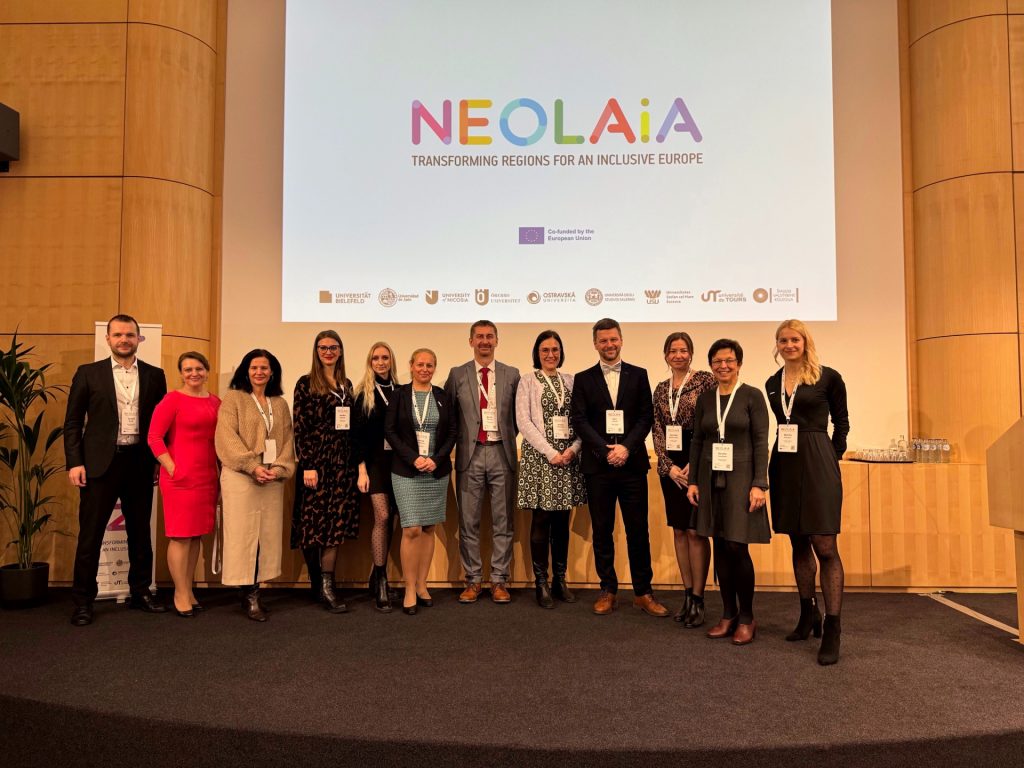
In addition to consortium delegates, guests from other relevant organizations, with whom the alliance will collaborate, also attended the event. These included Central Sweden, the Czech National Agency for International Education and Research (DZS – CZELO), the European Parliament, the Ostrava City Council, the Delegation of the Junta de Andalusia in Brussels, University of Sorbonne Nouvelle / University of Luxembourg, Foundation for the Management of European Lifelong Learning Programme of Cyprus, 012factory, Region Centre Val De Loire, and the Permanent Representation of Romania to the European Union.
The two-day event was filled with activities aimed at promoting inter-university cooperation and laying the foundations for the success of the NEOLAiA alliance. The first day began with speeches from the rectors of the University of Jaén and Örebro University, who lead the alliance. This was followed by a plenary session of the alliance, featuring presentations on the background of the NEOLAiA alliance. The alliance’s history was presented by the UO Vice-Rector, Renáta Tomášková, along with an introduction to the governance and executive structure of the alliance, followed by presentations on key areas of activity called “activity work packages.” One of these packages – enhancing mobility among alliance members – was presented by Kamila Danihelková from the UO Centre for International Cooperation, who leads the work package for the entire NEOLAiA alliance.
The festive opening ceremony and pillars of cooperation
Throughout the afternoon of the first day, various meetings took place with discussions among representatives of partner universities in various governance and executive sections of the alliance – the Board of Directors, Steering Committee, Executive Committee, and Student Advisory Group. These meetings provided space for discussion, alignment of visions and expectations, as well as sharing insights and considering possible paths of collaboration. The day culminated in a ceremonial opening event attended by all rectors of the participating universities, including the rector of our University of Ostrava, Petr Kopecký.
Invited guests also participated in this event, laying the groundwork for the next four years of cooperation, which cannot be achieved without mutual understanding and recognition. They particularly discussed university activities that will impact the communities, cities, and regions in which the universities operate – areas such as graduate employability, entrepreneurship, digital tool proficiency, and the application of research results.
The second day of the conference was marked by specialized discussions within the meetings of the various work package groups. These groups will meet for at least four years, responsible for addressing the tasks and activities set by the alliance, with individual delegates also responsible for the direct or indirect impact of NEOLAiA activities on their home universities. This part of the meeting was discussed in much greater detail, as many participants were not involved in the NEOLAiA alliance project from the beginning.
Through these working groups, the alliance will focus on agendas such as mobility development, digitization of science and education, strengthening scientific performance, setting open science policies, student entrepreneurship, development of language skills for students and staff, removing barriers to study, improving quality in education, and, last but not least, joint communication.
Throughout the conference, there were also meetings of university representatives from among the students. This acknowledged the critical role of students in guiding the alliance and achieving results, making them full partners for university representatives. The two-day conference concluded with final meetings of the Steering and Executive Committees, confirming the results of joint discussions and determining the tasks and direction of the project in the coming years.
“The inaugural meeting of the NEOLAiA project was a demonstration of the potential and determination for collaboration. By combining different perspectives, expertise, and resources, we, as universities, aim to support innovation. At the same time, the project will help us to further internationalize the University of Ostrava on many levels and not narrowly perceive this agenda only as a matter of mobilities,” said UO Rector Petr Kopecký.


 3 min.
3 min. 